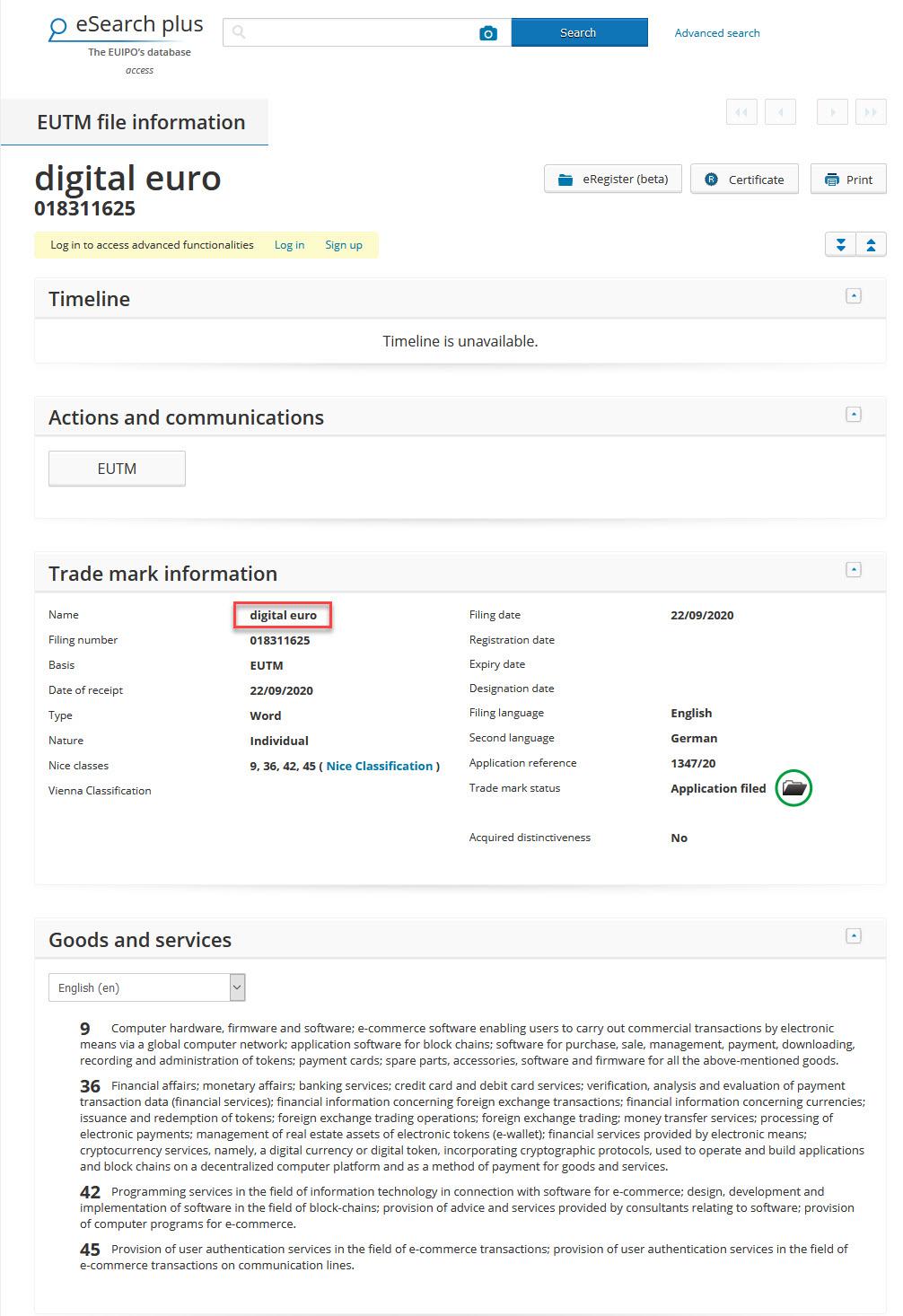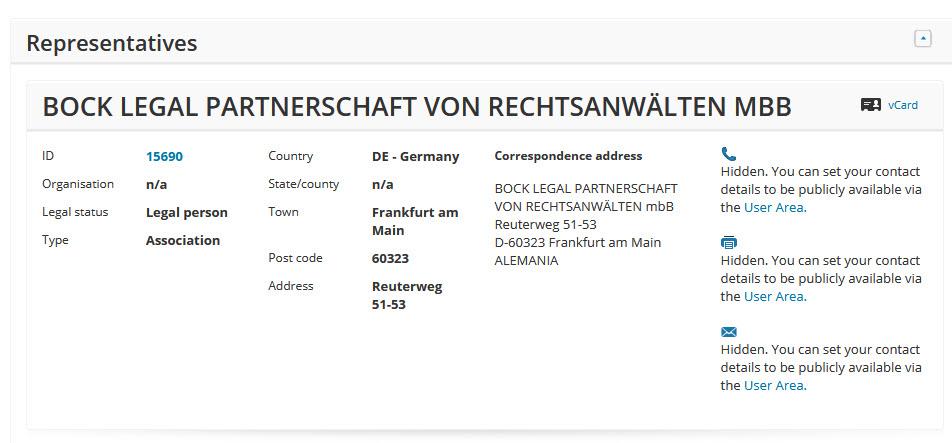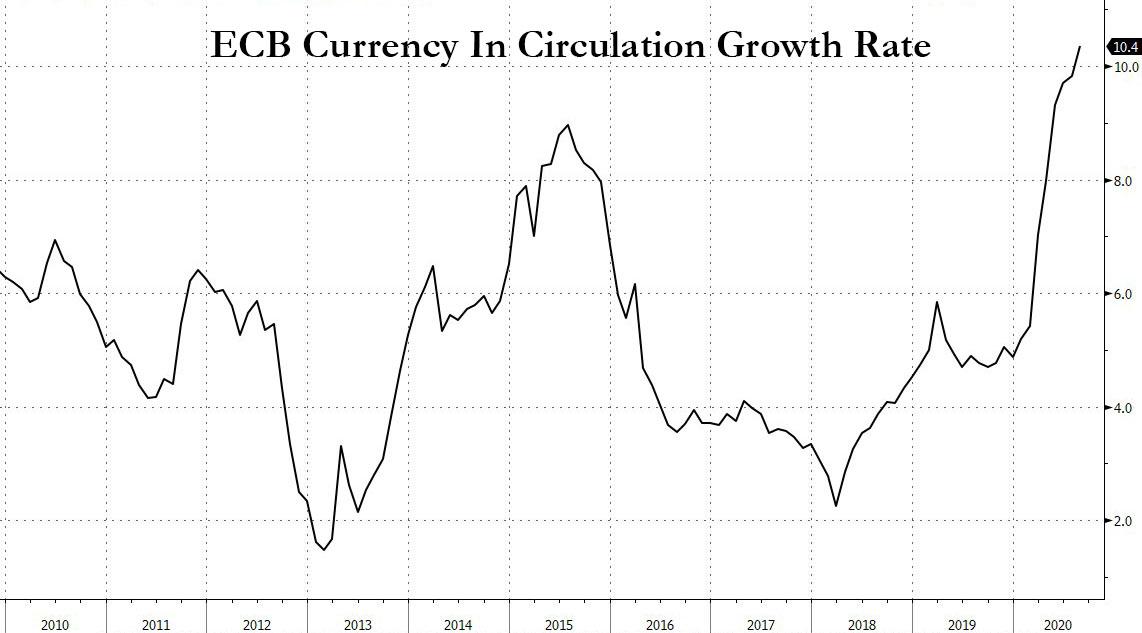
ER Editor: Zerohedge sees the digitization of our money as a way for central banks to track our financial movements and be able to ding us with bank charges. It’s also a way that governments can ensure we pay our taxes. However, amid a so-called ‘pandemic’, during which cash has been ridiculously labelled a health risk and carrier of the virus, it should be clear where this is going if our money becomes digital.
Robert F. Kennedy Jr. included this very topic in his public speech in Berlin on August 29. See Robert F. Kennedy Jr: Fighting Against Global Totalitarianism in Berlin [VIDEO]:
I’m going to say one more thing. They haven’t done a very good job about protecting public health. But they’ve done a very good job at using the quarantine to bring 5G into all of our communities. And to begin the process of shifting us all to a digital currency, which is the beginning of slavery. Because if they control your bank account, they control your behaviour. And we all see these advertisements on television saying 5G is coming to your community. It’s gonna be a great thing for all of you, it’s gonna change your lives, it’s gonna make all of your lives so much better. And it’s very convincing I have to say because I look at those ads and I think it’s great, I can hardly wait til it gets here. And because I’m going to be able to download a video game in 6 seconds instead of 16 seconds. And is that why they’re spending 5 trillion dollars on 5G? No. The reason is, for surveillance and data-harvesting. It’s not for you and me. It’s for Bill Gates, it’s for Mark Zuckerberg and Jeffrey Bezos. And all of the other billionaires. Bill Gates says that his satellite fleet will be able to look at every square inch of the planet 24 hours a day. But that’s only the beginning. He’ll also be able to follow you on all of your smart devices, through biometric facial recognition, through your GPS. You think that Alexa is working for you? She isn’t working for you. She’s working for Bill Gates spying on you…
********
ECB Trademarks “Digital Euro” As It Begins Experiments On Digital Currency Launch
This, together with an August Bloomberg interview with Simon Potter, who led the Federal Reserve Bank of New York’s markets group for years, and Julia Coronado, who spent eight years as an economist for the Fed’s Board of Governors (the two are among the innovators brainstorming solutions to what has emerged as the most crucial and difficult problem facing the Fed: get money swiftly to people who need it most in a crisis), in which the duo suggested depositing digital dollars directly in households’ apps, prompted us to write two weeks ago that “In An Unprecedented Monetary Overhaul, The Fed Is Preparing To Deposit “Digital Dollars” Directly To Each American.”
Yet when it comes to clogged funding pipelines and a slow monetary transmission mechanism, while the Fed may be slow in responding to the collapsing monetary velocity, the ECB is absolutely glacial, largely due to the fact that while the Euro area shares a monetary regime, it still has independent fiscal regimes.
Which may explain why, while the digital dollar is still in its development stage (the Fed is currently conducting joint research with MIT on whether and when to launch it), Europe is far closer to hitting the “green” button on a digital currency: on September 22 the ECB quietly filed to trademark the term “digital euro” (which appropriately enough abbreviates to DE to instill a sense of German patriotism when officials push Europe’s most conservative society into the great monetary unknown) as disclosed by the website of the European Union Intellectual Property Office, as European officials are preparing to release an assessment of the benefits and drawbacks of creating a digital version of the currency.
The trademark lists various applications for both goods and services, among which:
- Computer hardware, firmware and software; e-commerce software enabling users to carry out commercial transactions by electronic means via a global computer network; application software for block chains; software for purchase, sale, management, payment, downloading, recording and administration of tokens; payment cards; spare parts, accessories, software and firmware for all the above-mentioned goods.
- Financial affairs; monetary affairs; banking services; credit card and debit card services; verification, analysis and evaluation of payment transaction data (financial services); financial information concerning foreign exchange transactions; financial information concerning currencies; issuance and redemption of tokens; foreign exchange trading operations; foreign exchange trading; money transfer services; processing of electronic payments; management of real estate assets of electronic tokens (e-wallet); financial services provided by electronic means; cryptocurrency services, namely, a digital currency or digital token, incorporating cryptographic protocols, used to operate and build applications and block chains on a decentralized computer platform and as a method of payment for goods and services.
- Programming services in the field of information technology in connection with software for e-commerce; design, development and implementation of software in the field of block-chains; provision of advice and services provided by consultants relating to software; provision of computer programs for e-commerce.
- Provision of user authentication services in the field of e-commerce transactions; provision of user authentication services in the field of e-commerce transactions on communication lines.
The application was filed by the ECB’s legal representatives, Bock Legal:
This is happening as the growth rate of Europe’s currency in circulation just jumped into the double digits, the fastest pace this decade, strongly hinting that the ECB will be incentivized to track and control all circulating currency… ideally by converting it into digital.
To this point, on Friday, October 2 the European Central Bank announced that it will start conducting experiments to decide whether to launch a digital euro, according to Euro News.
In a report setting out the pros and cons of launching a digital euro, the ECB said that it “could support the Eurosystems objectives by providing citizens with a safe form of money in the fast-changing digital world.” By which, of course, it means preserving the ability to deposit – and withdraw – digital funds from European accounts at will, while in the process making banks redundant.
Unlike private digital currencies like Bitcoin or Facebook’s Libra, the digital euro would be a central bank liability and would complement the current offering of cash and wholesale central bank deposits. Its value would therefore not be volatile because it would be backed by the central bank.
The ECB stressed in its report that financial institutions and infrastructures are “increasingly threatened” by a wide array of tail risks as the proportion of payments services that are digitalized is increasing.
Blaming everything form cyberattacks, natural disasters and pandemics, the ECB highlighted these “potential risks” because they can lead to outages of private card payment schemes, online banking and cash withdrawals from automated teller machines (ATMs) that could “significantly affect retail payments and erode trust in the financial system in general”. In short the ECB doesn’t even need a crisis to commence an unprecedented monetary overhaul – even the mere hint of some possible stress event is now a sufficient reason to shift away from paper currency and toward a digital one.
The digital euro would thus provide a “possible contingency mechanism for electronic payments that could remain in use even when private resolutions are not available,” the report notes.
Surprisingly, the ECB also flagged that it could have a negative impact on financial stability (perhaps in anticipation of German complaints): “The euro belongs to Europeans and our mission is to be its guardian,” said ECB President Christine Lagarde.
“Europeans are increasingly turning to digital in the ways in the ways they spend, save and invest. Our role is to secure trust in money. This means making sure the euro is fit for the digital age. We should be prepared to issue a digital euro, should the need arise,” she added.
Did she say save? Save what? Where? Who in their right minds would “save” money in a bank to earn pay -0.50% interest rate? It’s so blatantly obvious that the ECB’s “digitalization” effort is merely an attempt to prevent Europeans from hoarding paper cash, thus avoiding punitive bank rates, that we won’t even discuss it here.
Furthermore, the ECB admits that some 79% of all euro area payments at points of sale are still cash transactions, amounting to more than half of the total value of all payments. There is nothing more the ECB would love than having a trail of each and every one of those transactions.
Eventually, the ECB will decide whether it should proceed with creating the digital euro by mid-2021.
Yves Mersch, a member of the executive board of the ECB, has backed the creation of a digital euro, stressing earlier this year that money is a public good and that “it can only inspire trust and fulfil its key socioeconomic functions if it is backed by an independent but accountable public institution which itself enjoys public trust and is not faced with the inevitable conflicts of interests of private institutions.”
He described Libra, Facebook’s planned digital currency, which is to be overseen by a 28-member organization and backed by reserves of real-world assets, as “cartel-like”.
He also expressed doubt over the fact it will be released “by the very same people who had to explain themselves in front of legislators in the United States and the European Union on the threats to our democracies from their handling of personal data on their social media platform.”
Yes, because the ECB handling the personal and financial data of all Europeans under a fake pretext will be so much more “democratic.”
************
Original article

••••
The Liberty Beacon Project is now expanding at a near exponential rate, and for this we are grateful and excited! But we must also be practical. For 7 years we have not asked for any donations, and have built this project with our own funds as we grew. We are now experiencing ever increasing growing pains due to the large number of websites and projects we represent. So we have just installed donation buttons on our websites and ask that you consider this when you visit them. Nothing is too small. We thank you for all your support and your considerations … (TLB)
••••
Comment Policy: As a privately owned web site, we reserve the right to remove comments that contain spam, advertising, vulgarity, threats of violence, racism, or personal/abusive attacks on other users. This also applies to trolling, the use of more than one alias, or just intentional mischief. Enforcement of this policy is at the discretion of this websites administrators. Repeat offenders may be blocked or permanently banned without prior warning.
••••
Disclaimer: TLB websites contain copyrighted material the use of which has not always been specifically authorized by the copyright owner. We are making such material available to our readers under the provisions of “fair use” in an effort to advance a better understanding of political, health, economic and social issues. The material on this site is distributed without profit to those who have expressed a prior interest in receiving it for research and educational purposes. If you wish to use copyrighted material for purposes other than “fair use” you must request permission from the copyright owner.
••••
Disclaimer: The information and opinions shared are for informational purposes only including, but not limited to, text, graphics, images and other material are not intended as medical advice or instruction. Nothing mentioned is intended to be a substitute for professional medical advice, diagnosis or treatment.









